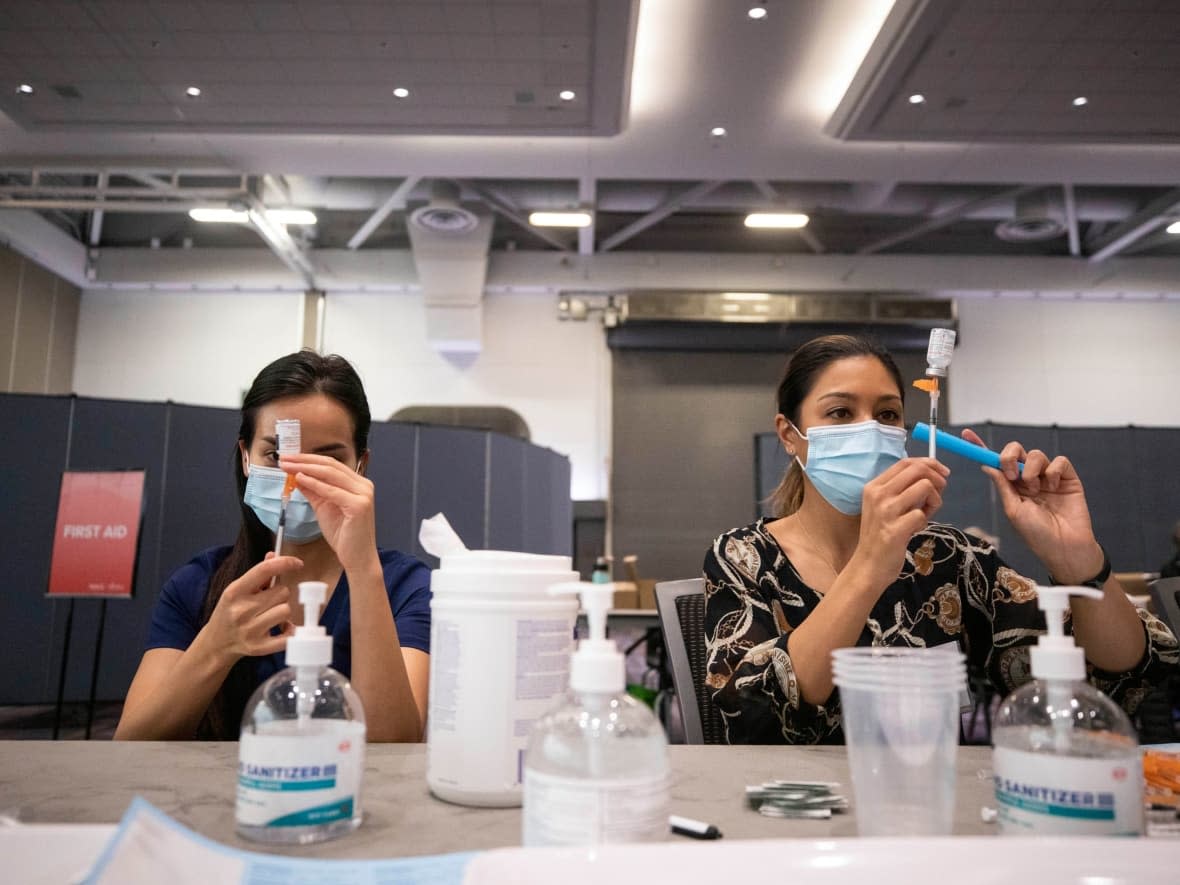Health ministry struggled to gather COVID-19 vaccine data from high-risk groups: B.C. auditor general

More than 14 million doses of COVID-19 vaccinations have been doled out in British Columbia but a recent report shows there were gaps in how the Ministry of Health collected some of that data.
On Thursday, B.C.'s Office of the Auditor General released its assessment of how the ministry monitored COVID-19 vaccination rates. The report looked at vaccination coverage for the entire province and zeroed in on two high-risk groups: residents and staff at long-term care (LTC) and assisted living (AL) facilities and health-care workers.
It concluded that while the ministry was able to consistently monitor vaccine rates for the general public, they had difficulty tracking uptake in the high-risk populations.
According to the report, there is no centralized registry for people who live and work in B.C's approximately 500 long-term care and assisted living facilities and this made the data collected likely inaccurate.
No central database meant the province was monitoring vaccination rates for LTC and assisted-living facilities using general vaccination rates that were being fed into the Provincial Immunization Registry (PIR) and population estimates for these facilities in each health authority.
The ministry did put systems in place for facilities to report on resident vaccination rates for residents and staff, according to the report.
The auditor general's office said private assisted-living facilities did not report through any ministry or PHSA (Provincial Health Services Authority) system though and "regular turnover" of residents in both public and private facilities made accurate tracking difficult.

"In the absence of a provincial database, ministry and PHSA staff had challenges confirming the number of residents and staff in LTC and AL facilities," reads the report.
B.C. auditor general Michael Pickup said in a press conference that the ministry shared the information with decision-makers efficiently, despite the challenges in collection data pertaining to health-care workers and staff and residents of long-term care homes.
"Vaccination coverage information helped to guide the vaccine roll out and to inform public health measures… Our audit confirmed that the ministry did indeed have the information it needed to monitor COVID vaccination rates with some exceptions to high-risk groups," he said.
"There is no centralized registry for [long-term care and assisted living facilities.] Therefore in some cases data collection had to be done manually, which means data collection on those groups could have been inaccurate."
The full report from the Office of the Auditor General can be read here.
2 recommendations made
The auditor general's office first recommendation is that the health ministry have access to a current registry of residents and staff at both public and private facilities moving forward.
When vaccines began rolling out in December 2021, high risk health-care workers were prioritized for shots. Using the PIR, the Health Ministry was able to track those vaccine rates using information from regional health authorities to estimate this population.
Priority was first given to workers in intensive care units, emergency departments, surgical and medical units and paramedics.
Where the auditor general found gaps, was from February to October 2021 when more health-care workers became eligible to get vaccinated and the province did not adjust its population estimates to account for those newly eligible.
The report's second and final recommendation is that the ministry have access to a current registry of health-care employees working in health authorities to meet future public health needs.
The ministry has accepted both of the report's recommendations and Health Minister Adrian Dix said the ministry is already taking action on them.
Dix, speaking Friday on The Early Edition, said the report was "generally favourable" and that the data in question was only ever off by a few percentage points.
"We had more than enough information to make decisions," he said.


